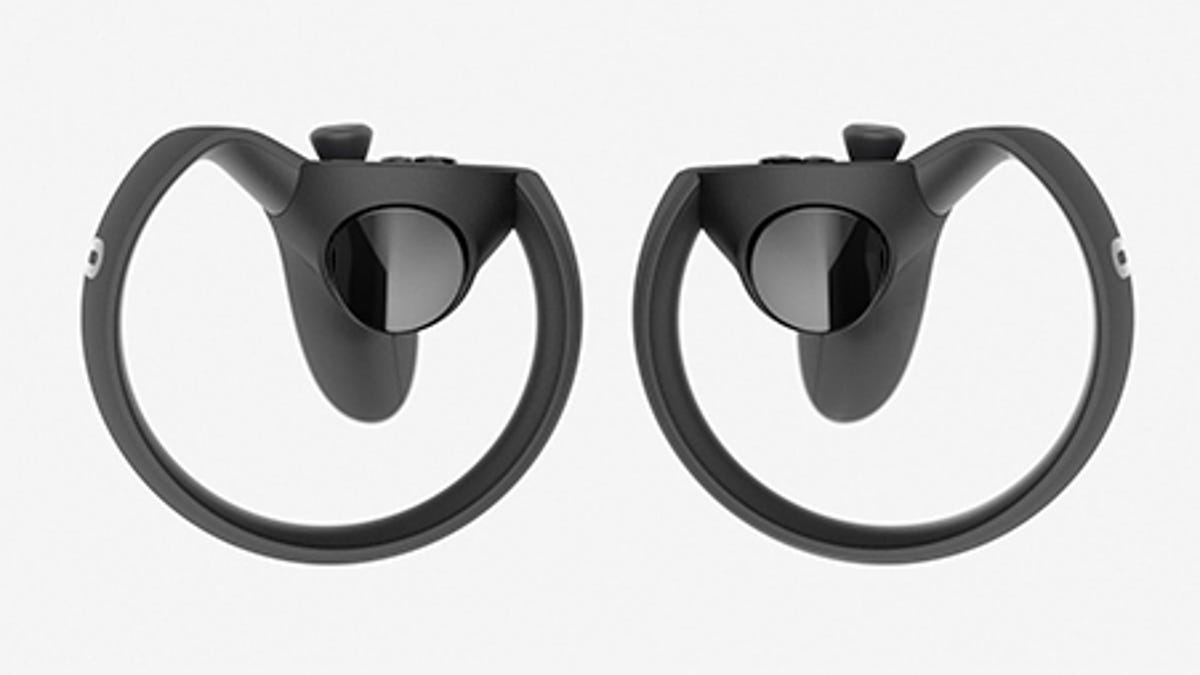Oculus VR's oddly shaped controller is a Touch delayed
The Facebook subsidiary continues to tinker with its new Oculus Touch controller, designed to let people interact naturally with virtual environments.
Those of you hoping to reach out and touch computer-generated worlds will have to wait a little longer.
Oculus VR, the pioneering virtual-reality startup bought by Facebook for $2 billion last year, said in a blog post Thursday that it has delayed the release of its Touch controllers until the second half of 2016. The gadgets are designed to let people use hand gestures in all-digital environments.
Oculus had originally planned to offer them in the first half of the year, around the same time as its Rift headset, which straps a screen to your face to show you virtual realms.
"On the path to perfecting Touch, we've decided that we need more time before release," the company said. "On Touch hardware, we've made significant advances in ergonomics, and we're implementing many changes that make Touch even more comfortable, reliable and natural. We're also implementing changes that improve hand pose recognition."
The move is likely to disappoint people who have been pining to finally use this new technology. Since launching in 2012, Oculus has reinvigorated consumer interest in virtual reality, prompting other companies large and small to offer their own competing products in what's expected to be a hotly contested market. Questions remain, though, about how many people will actually buy VR devices and whether those devices will represent the next big tech wave, much as laptops and cell phones have.
Oculus' Touch controllers have an unusual shape. HTC/Valve's Vive headset uses a set of wands with polygonal doodads on top. Sony also takes a wandlike approach. Its PlayStation-based Morpheus headset uses a couple of PlayStation Move controllers, each of which looks like a TV remote with a ping-pong ball stuck on the front. In contrast, Touch controllers look, according to CNET Reviews' Scott Stein, "more like skeletal hand-grips than wands."
Stein took the motion-sensing grippable controllers for a test drive and wound up playing virtual tetherball with Oculus Rift mastermind and Time magazine cover boy Palmer Luckey. Stein liked that the Touch controllers allowed him to actually move his fingers around -- to point, for instance, or give a thumbs-up. And he said the controllers seemed to "melt away" during use. For starters, though, the Rift will ship with an Xbox One game pad controller.
Despite the delay, Oculus promised that its flagship Rift headset will still arrive by March, its original launch period. And, the company promises, there will be new experiences to go along with it, including games.
CNET's Ian Sherr contributed to this report.


